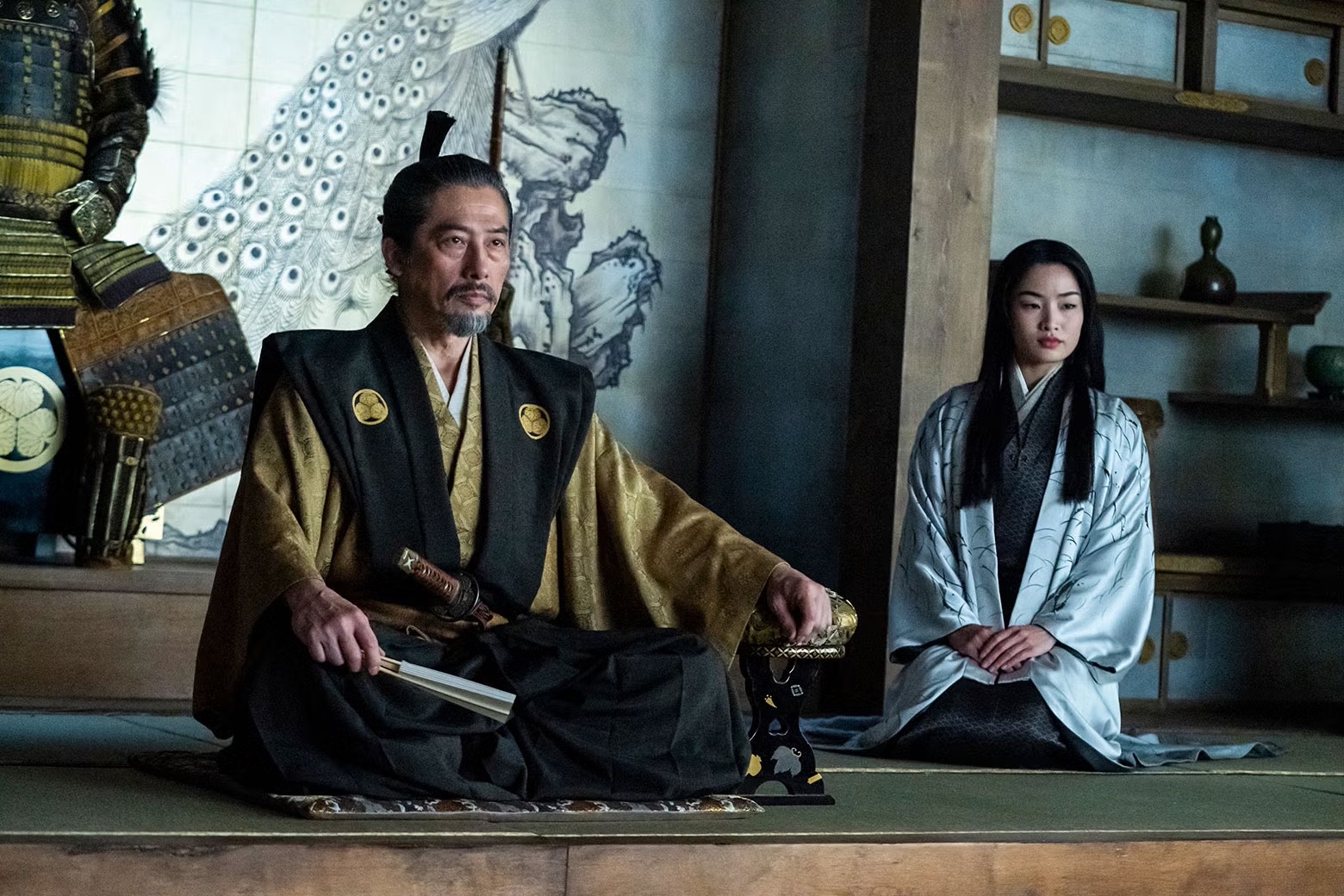Eight episodes into its 10-episode season, Shōgun had already established itself as clearly one of the best new shows of the year. But with this week's episode, "The Abyss of Life," the show—after being compared to Game of Thrones through its entire run by critics—finally achieved a singular Thrones-like moment of shock.
The dramatic arc of the episode hinges on Toranaga's decision to surrender his army and make preparations for what will come after, namely: a lot of them having to self-disembowel. It's a masterclass in tension, with many senior advisors refusing to believe that Toranaga would yield them to this fate and that it must be a plot. To be honest, the audience is likely wondering the same thing. Which all feeds into the startling, protracted scene where Toranaga's advisor and oldest friend Hiromatsu commits seppuku in protest in front of the assembled lords. The inevitable is drawn out long enough that you think what's definitely about to happen won't actually happen simply because you don't want it to.
Throughout Shōgun's run, there's been great filmmaking and performances, gnarly violence and elaborate setpieces, engaging political intrigue, and even some classic sexposition. Audience avatar John Blackthorne has been handled well, and people are really into his insults. The show rocks. But it reached something like transcendence in this episode. Hiromatsu and Toronaga calling each others' bluffs for so long and to such a gnarly end confronts the viewer with the visceral and emotional heft of Shōgun's themes of tradition, loyalty, and the silent agreements to which these things bind people.
To me that's what separates Shōgun from being another Thrones: its dedication to thematic storytelling above all. Maybe because it is a limited series—though we'll see how long that plan lasts given its success—it has less room for endless worldbuilding and instead broadens its focus to encompass a larger human story of staunch traditions, and who and what we choose to be loyal to, and why. The creators use great care and detail in the recreation of feudal Japanese customs and politics, but importantly they portray them not as alien but as familiar; they show that these characters have the same desires and ambitions as you or I do, today, capturing the universality of our wants and needs. Toranaga grapples with his age and his duty as leader, wrestling between his personal wishes and what's good for his people; Blackthorne is an ambitious adventurer who finds himself becoming a man without an anchor as he falls further away from his own customs; Mariko, who translates between the two and often voices Shōgun's themes of purpose in more expository fashion, is torn about her role as a woman in her society. These are not unknowable figures of a different age; they are recognizable people with conflicts that are relatable in kind if not in degree.
Shōgun is based on the James Clavell book of the same name, a fictionalized account of the English navigator William Adams and the power struggle between the successors of Toyotomi Hideyoshi that led to the founding of the Tokugawa shogunate. But it is not beholden to the novel; the show intends to flesh out some of the inaccuracies of the book and present the story in a way that's less beholden to and from the perspective of the white interloper. While the show spends plenty of time with Blackthorne, it doesn't remain there and it especially doesn't position his plotline above the others. It's a delicate dance but they've pulled it off so far. The world is rich enough and engrossing enough to continue on. But then again, maybe the best lesson the creators can learn from Game of Thrones is to just stick with the source material and get out while you're ahead.






